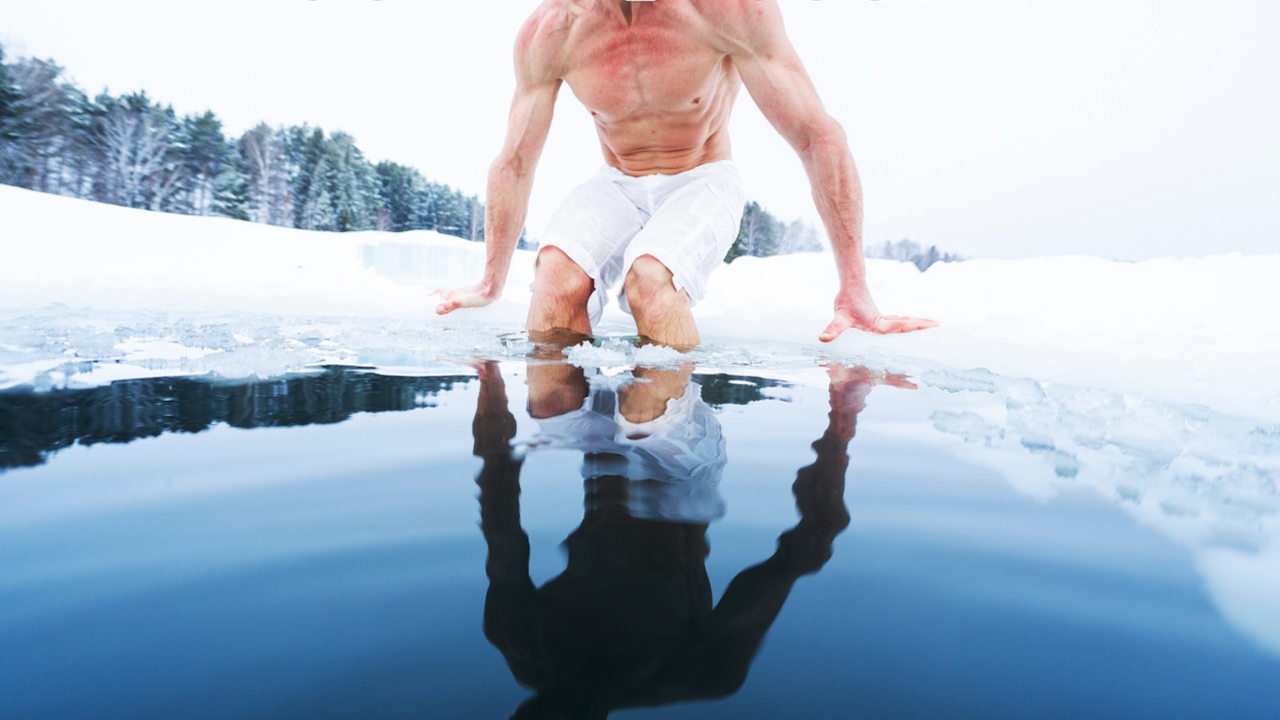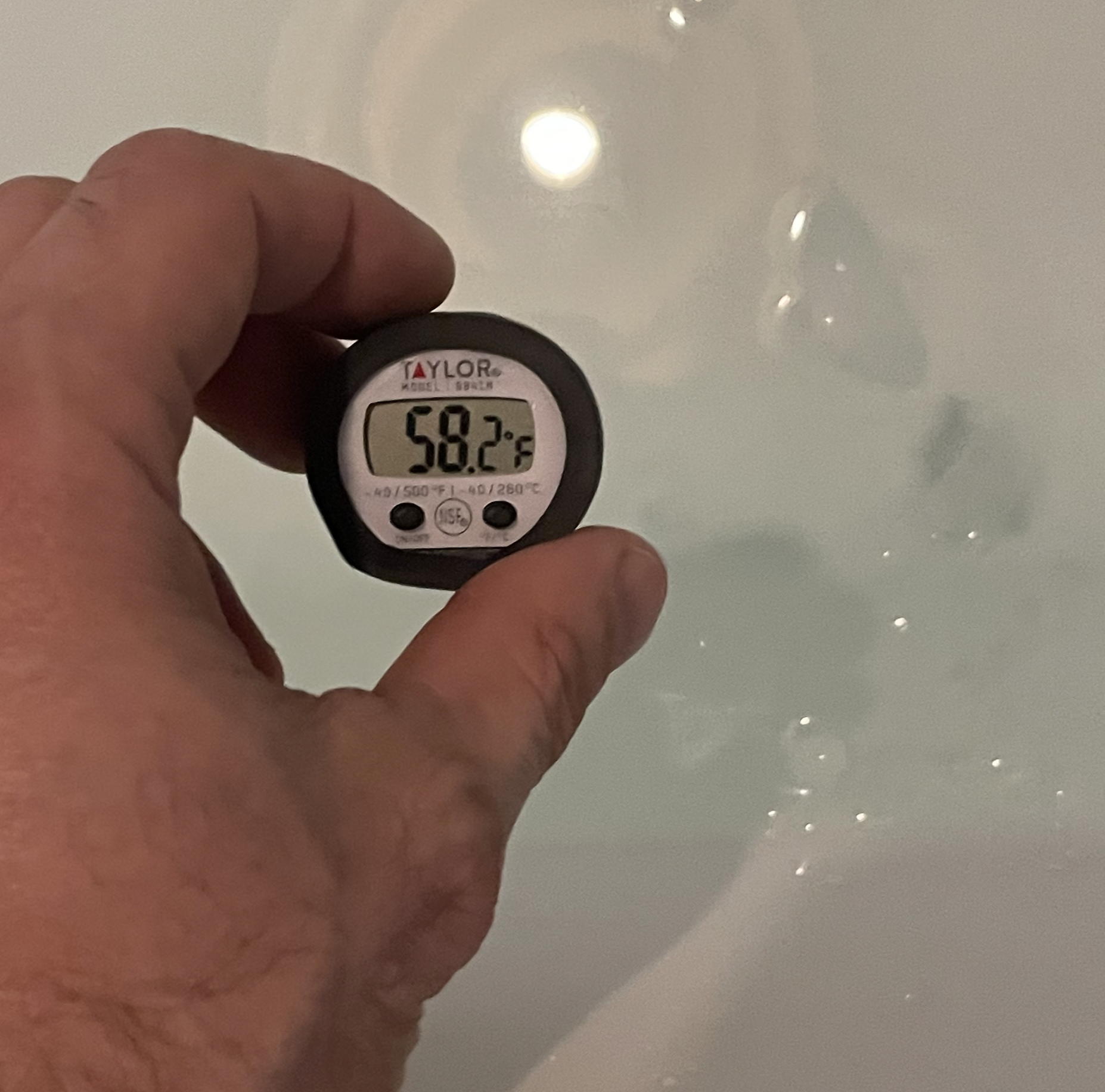Is Deliberate Cold Exposure Helpful for Cops?
Dec 11, 2022
If you are lucky enough to live somewhere that the seasons change hard & fast, you will know that those cold winters offer more than just frostbite and frozen tires that lead to bumpy car rides.
Cold plunges are becoming widely recognized as an incredible recovery tool. Not only for our physical health, but our mental health as well.
First off, what’s the science behind it? Why and how does it work?
Well, in theory, by entering cold water we expose our bodies to a controlled stress reaction. Our nervous system will then become “triggered” as it is exposed to a significant change in the environment. Our bodies respond on a cellular level to the environment shift, but oddly enough it promotes many health benefits. In addition, repeated exposures over time promote adaptation by the body and stress becomes much easier to tolerate or mitigate. We are training our bodies for stressful events and lessening the impact that it will have on us.
For an in depth dive of science-backed Recovery Methods, Click Here For Free Recovery Guide for LEOs
Before we dive deeper, what types of cold temperatures do we need to expose ourselves to in order to achieve this result? Look at the different types of therapy that exist:
-
Ice Baths: heavily claimed to be the ultimate version of cold therapy. Minimum time required as temperatures range between 35 Farenheit and 60 Fahrenheit (2 Celsius and 16 Celsius) 2-5 minutes proven to be most effective;
-
Cold Plunge: These usually range from 50 Farenheit and up or 10 Degrees Celsius and warmer. The length of time one needs for proper exposure tends to be longer due to warmer water; however, these are still a very popular option;
-
Cold showers: somewhat effective; however, it can be difficult to trigger a stress response in the body. This method also does not fully subject the entire surface area of the body to cold water therapy;
How the body responds to stressors in life and cold water exposure is not so different. The body elevates the heart rate, feelings of panic, bodily contractions, shallow breathing are experienced during a stress response. If we can promote consistent exposure to controlled stress, ie cold therapy, in theory uncontrolled stress becomes much less challenging to deal with.
View this post on Instagram
What happens below the skin during cold water exposure?
The body during these exposures strengthens our immunity and immune responses, digestive abilities and our circulatory system. The nervous system is also activated and strengthened. Hormones are released which positively impact our physiology.
In addition, the challenge of ice baths promotes resiliency, strength, and confidence as you embark on pushing the limitations to what you previously believed you could endure. Our greatest strengths are often found in our most challenging moments.
Impacts to the body include:
-
improves blood circulation
-
reduces inflammation
-
weight loss
-
decreases muscle aches
-
reduces stress
-
strengthens immune system
-
prevents (and improves) mental health conditions specifically depression and anxiety
-
enhances skin condition and hair
-
increases fertility
-
increases energy
-
Increases lymphatic movement
-
Improves pysche
-
Improves sleep
-
Increases alertness
-
Increases physical performance in sports
-
promotion of alkaline blood
-
Improves lung function
-
stabilizes blood sugar levels
From a mental health or Post Traumatic Stress Disorder (PTSD) perspective:
Many that suffer from this claim that they struggle to be present in the moment. Fear and anxiety due to an increased amygdala often tends to incapacitate an individual and lock them in constant cynical thought of the past or the future, essentially leaving the person unable to be grounded in the present moment and at ease. Cold therapy is one of the strongest grounding techniques currently available and the impacts are noticed long after leaving the therapy session.

If we treat the body and train the body, we free the mind. The mind-body connection is still only understood at a very basic level; however, we are starting to see that the connection between the two is largely relevant especially when considering treatment options for PTSD or mental health issues.
If you are brave enough to challenge yourself, try deliberate cold exposure by SLOWLY decreasing the temperature and SLOWLY increasing the time spent. You will see the immediate positive impact one can receive from such an event!
Free Resource: An in depth dive of science-backed Recovery Methods, Click Here For Free Recovery Guide for LEOs

